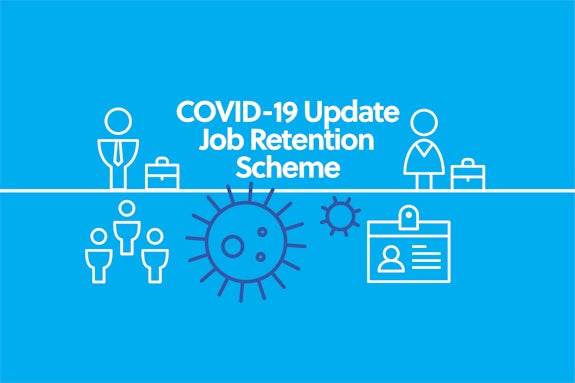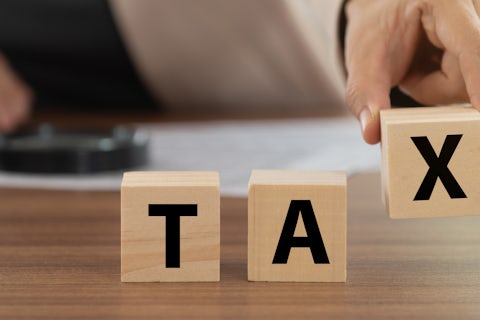We were all delighted to see the radical measures being put in place by the Government. The Chancellor’s announcement yesterday about covering up to 80% of employee costs if your business has no work for them will be a much needed lifeline for many businesses, but it does come with conditions and it will require changing your current employment contracts.
We have prepared an updated Q&A for employers. We appreciate that many of you will be self-employed, therefore we have covered off some of the more major issues that you will be facing.
If you want to discuss any of these issues, or need assistance in working out how to go about changing your current terms and conditions of employment, then speak with our employment partners, Graham Millar (gmillar@gilsongray.co.uk, 07841 920 102) or Stuart Robertson (srobertson@gilsongray.co.uk, 07793 821 523).
- What is the Coronavirus Job Retention Scheme?
This is an entirely new scheme, which will be administered and operated by HMRC. Like any new system, there will be teething problems and on the basis that HMRC is not really set up to make payments to employers, it will require an entirely new payment portal to be set up.
The earlier you are able to apply to the Scheme, the earlier you are likely to receive the payment, therefore we are urging everyone to regularly check HMRC guidance and to sign up for the portal as early as possible.
Under the Coronavirus Job Retention Scheme, all UK employers will be able to access support to continue paying part of their employees’ salary for those employees that would otherwise have been laid off during this crisis. At present the scheme is open to all UK businesses
- How do I access these funds?
The process is as follows:-
- IDENTIFY AFFECTED EMPLOYEES – establish those employees who have no work to undertake as a direct consequence of coronavirus;
- CHANGE THE STATUS OF EMPLOYEES – you will need to change the designation of those affected employees to ‘furloughed workers’ – this can only happen with the agreement of your employees and will result in a change to existing terms and conditions of employment. We have covered off how you do that below.
- NOTIFY HMRC – you will require to submit information to HMRC about the employees that have been furloughed and their earnings through a new online portal (HMRC will set out further details on the information required which is why you need to ensure that you are keeping a close watch on when this portal is up and running).
Once you have done that, then HMRC will reimburse 80% of furloughed workers wage costs, up to a cap of £2,500 per month.
- How do I change existing terms and conditions of employment?
Firstly check your existing terms and conditions of employment. What you are looking for is a clause confirming that you are able to vary the existing terms and conditions simply by notifying the employees.
If there is no such term within your existing contracts of employment, then you will need the agreement of employees before the change can be implemented.
If you have a unionised workforce, then you will need to check the terms of those collective agreements. This is slightly more complicated, so feel free to contact our employment team on how best to consult with the union.
If there is no recognised trade union, then you will need to communicate with your staff. You need to make it clear:-
- what change you are proposing,
- why you are proposing to make that change,
- when that change will take effect,
- who is likely to be affected by that change and
- for how long that change will be in place.
As part of any consultation on these changes, ideally you should give your employees an opportunity to provide you with any comments or questions, however it may be possible simply to impose the change on your employees. We would rather you did not just impose the change, but if you are in any doubt, then please contact our employment team.
To acknowledge the change, you will need to get your employees to sign a letter confirming that they are in agreement with the change. We can assist with style letters that you are able to issue to employees.
In the current climate, employees faced with losing their job, or at least getting a fair proportion of their wages are likely to take a pragmatic approach.
- Are there any other steps I can take?
If you are in the process of changing terms and conditions of employment, it might be prudent to consider whether or not there are any other changes that can be added to the consultation. The contractual ability to lay off staff, or to impose short-time working is something you may want to consider.
Whilst we can benefit from the terms of the Job Retention Scheme, looking to the future, there may be a requirement to consider laying off staff, rather than making them redundant. You can discuss the benefits of lay-offs and short-time working with our employment team.
- Are my employees allowed to volunteer or undertake other work whilst they have been furloughed?
Maybe. If the exiting contract allows employees to undertake other work whilst employed by you, then provided those employees follow Government guidance on social distancing and self-isolation, as well as adhering to any updated or subsequent guidance on a full lock-down, then it would be possible for them to undertake other voluntary or paid work.
At present, there will be a considerable requirement for volunteers across the entire country and it would be good for all employers to let their staff make their positive contribution for this crisis.
- If there is work for these furloughed employees, will they still be eligible for the 80% payment?
At present, no details are available. For those employees who are able to work and assuming there is work available for them to do, then they will simply be paid as normal. If there are occasional or temporary projects or work assignments, then it seems unlikely that HMRC will still pay any contribution to their salary payments during that period of work, but we will clarify that point once more information becomes available.
- Do I need to top up the salary to 100% of what they are current getting?
Maybe. Whilst the government are encouraging employers to pay the balance to employees, this is entirely voluntary, however technically if the employee is available to work, then they are entitled to be paid, so that 20% reduction in salary may be regarded as an unauthorised deduction from wages, depending upon what is in the contract of employment.
- Can the employees chose to stay at home and be furloughed employees?
No, it has to be determined by the employer.
- How long will this Scheme be in place?
The Chancellor has announced that it will be in place for an initial period of three months, however has indicated that he is open for this to continue, depending upon the need.
- What if those furloughed employees become unwell?
If one of your furloughed employees becomes unwell, then we assume that the normal rules in relation to incapacity for work will apply. It is much easier now to get an isolation note from NHS 111, which confirms that you are required to self-isolate. If an employee provides you with that isolation note, then they should move onto SSP, which is payable from day 1. Having said that, if an employee is receiving 80% of their salary and does not require to attend work, then it is unlikely that they will advise you of the requirement to self-isolate.
- Can I classify my self-employed sub-contractors as furloughed employees?
No. It is expected that HMRC will be looking for evidence of employment and of income tax and National Insurance contributions going through your PAYE payments. At present we are not aware of the exact terms of the Scheme, but it is unlikely that you will be able to offer those sub-contractors the opportunity to become employees. We will digest the terms of the scheme and if that is possible, we will let you know.
- What protection is in place for any self-employed sub-contractor?
For any individual, income tax self-assessment, payments normally due on the 31 July 2020 will be deferred until the 31 January 2021. No penalties or interest for late payment will be charged in this deferral period.
HMRC have also scaled up their time to pay offers to all individuals (and firms) who are in temporary financial distress as a result of Covid-19 and have outstanding tax liabilities.
- What about my business if I’m self-employed?
As well as the income tax-self assessment payments being deferred, there are a couple of other measures that have been put in place, such as deferring VAT and Income Tax payments. If you pay VAT, then you will be allowed to defer any payments for a period of 3 months. You should speak to HMRC as soon as possible to confirm the deferment of any VAT and also any income tax payable for your employees.
In addition to that, a new temporary Coronavirus Business Interruption Loan Scheme, delivered by the British Business Bank, will launch early next week to support primarily small and medium-sized businesses to access bank lending and overdrafts.
The government will provide lenders with a guarantee of 80% on each loan (subject to a per-lender cap on claims) to give lenders further confidence in continuing to provide finance to SMEs. The government will not charge businesses or banks for this guarantee, and the Scheme will support loans of up to £5 million in value.
Businesses can access the first 12 months of that finance interest free, as government will cover the first 12 months of interest payments.
You are eligible for the scheme if:
- your business is UK based, with turnover of no more than £45 million per year
- your business meets the other British Business Bank eligibility criteria
The full rules of the Scheme and the list of accredited lenders is available on the British Business Bank website. All the major banks will offer the Scheme once it has launched. There are 40 accredited providers in all.
You should talk to your bank or finance provider (not the British Business Bank) as soon as possible and discuss your business plan with them. This will help your finance provider to act quickly once the Scheme has launched. If you have an existing loan with monthly repayments you may want to ask for a repayment holiday to help with cash flow.
The scheme will be available from early next week commencing 23 March.
- What assistance can Gilson Gray provide?
In these unprecedented times, it is crucial that businesses remain afloat and able to carry on trading as soon as things return to relative normality. We are there for all businesses and as well as providing regular updates, all our teams are open for business.
If you want to speak to anyone within the employment team, then please contact Graham Millar (gmillar@gilsongray.co.uk, 07841 920 102) or Stuart Robertson (srobertson@gilsongray.co.uk, 07793 821 523).
The information and opinions contained in this blog are for information only. They are not intended to constitute advice and should not be relied upon or considered as a replacement for advice. Before acting on any of the information contained in this blog, please seek specific advice from Gilson Gray.








